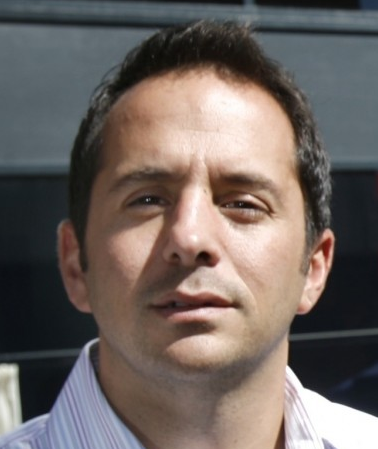Riley: Kushner and the “Hot Air Ball”
Tuesday, November 10, 2015
Recently released depositions related to the State of Rhode Island lawsuit against parties associated with the 2010 EDC loan to 38 Studios have been fascinating. And by far, one of the most relevant depositions took place on June 2, 2014, when witness Sean Esten was under examination and was being deposed by Mr. Gerald Petros, counsel for Southwest Securities, and a defendant in the State's lawsuit.
Mr. Esten was an employee with the EDC, hired in 2009. Esten's normal role was to issue a credit memorandum referencing EDC loans that would then be presented to lenders, i.e. banks. But the 38 studios financing was a whole different ballgame with serious implications as is evident in this deposition.
Remember, even though there had already been significant lying and deception prior to June 2010, nothing would happen unless 38 Studios got a significant amount of money. Therefore no taxpayer money would have been lost. 38 studios needed a full $75 million cash just to survive to the next phase. Watching all the excuses, characters, arm twisting and contortions is fascinating in this deposition. Mr. Esten almost immediately said he had serious doubts about 38 Studios viability. His testimony was that he was ignored by his boss Michael Saul and frozen out by players within and outside the EDC determined to make the financing happen.
GET THE LATEST BREAKING NEWS HERE -- SIGN UP FOR GOLOCAL FREE DAILY EBLASTWhat is a Kushner?
Esten was responsible for analyzing the risk of loans processed through the EDC. He created “credit memorandums” for thousands of small businesses during his career. In the beginning he thought this was his role for 38 studios. These memorandums were then used by lenders to assess whether to lend money to the small businesses. In early 2010, Esten was named as part of the due diligence team for the EDC regarding 38 Studios. However Esten was never able to even start producing a credit memorandum due to lack of information regarding 38 Studios and the intended scope of borrowing. Esten was swept aside by events and officials in the EDC and his warnings were ignored.
In March 2010 the full court press was on to get Curt Schilling and 38 Studios financed by hook or, as it turns out, by crook. With the 2 year old EDC Job Creation Program languishing and unemployment still double digits, an unusual combination of insiders felt pressed to do something quickly. Simultaneously another less altruistic group of insiders looked ravenously at the approaching corpse that was Curt Schilling. Characters like Michael Corso stood to take tens of millions out of the deal. Several politicians of only one stripe saw an opportunity to extend and brighten their careers and issue favors that would be paid back in spades. But one honest guy stood in their way. On March 31, 2010 the authorized size of the Job Guaranty program was $50 million dollars - total. A few days later it was $125 million. That’s when Esten learned what a “Kushner” was. The following testimony appears on pages 129 and 130 of Esten's deposition. The questioner is Mr. Petros.
Deposition June 2, 2014
Petros: Did you know what a Kushner was?
Esten: At that point in time, no.
Q. Did you learn?
A. I did learn.
Q. What is it?
A. It is a certain method that the Legislature, I'm not sure when they came up with it, but it was a way to allow some subsidiary corporations to issue bonds and to get the backing of the state without it having to go to referendum of the voters. I don't understand the full legal structure of how it came about or how it works.
Q. When did you learn that, what that meant?
A. It was during the 38 Studios process.
Q. Was that a form of financing that was being discussed in the 38 Studios process?
A. Yes.
Hot Air Ball
The term “hot air ball” appears on pages 139 and 140. The notes on a memo at a meeting in June 2010 regarding risk are written by legal counsel for the EDC, Mr. Stolzman. The following exchange involves Esten, Max Wistow (Rhode Island's lawyer) and Mr. Petros:
Deposition June 2,2014 referring to the notes:
Q. Mr.Petros - Okay. Now, below that it seems to be an arrow that says collateral value and MMO?
A. Mr. Esten - Correct.
Q. Can you tell what the next word is?
MR. WISTOW: Mr. Stolzman said it said, "hot air ball," that's his testimony. You can call the judge, do what you want.
MR. PETROS: I'm asking the witness.
MR. WISTOW: You're asking the witness what it says?
MR. PETROS: Don't testify.
MR. WISTOW: The guy who wrote it testified under oath it says “hot air ball”
MR. PETROS: When you question the witness, you can ask him that. That's inappropriate.
MR. WISTOW: It's totally inappropriate for you knowing what he said – all right, do what you want. Go call the judge.
MR. PETROS: You've already done it.
MR. WISTOW: You're damn right, I already did it.
MR. PETROS: Do you want to swear some more or do you yell at me some more? I object to your attitude. I object to you yelling at me, and I object to your interference with the deposition.
MR. WISTOW: I sorry to hear that. I object to the fact that you're trying to mislead the witness by having him read something that the guy who wrote it testified --
MR. PETROS: That is a bad faith
Later in the deposition:
Q. PETROS: Do you remember a discussion about an air ball?
A. ESTEN: Yes.
Q. PETROS: What is that?
A. ESTEN: An air ball is when there's a difference between what the value of the collateral on a transaction is and what the amount that someone wants to borrow or is borrowing, so it's -- depending on where you are, it's called different things.
Q. PETROS: So there is a gap between the amount that's being loaned and the value of the underlying collateral.
A. ESTEN: Correct.
Q. PETROS: And that's what's referred to as an air ball in your industry?
A. ESTEN: In this case, yes.
Q. PETROS: Was there a discussion of that gap at this April 2 meeting?
A. ESTEN: Yes.
Q. PETROS: And can you recall anything about that discussion?
A. ESTEN: I don't recall.
Q. PETROS: Did you perceive that air ball as being a significant number in this transaction?
A. MR ESTEN: Yes.
A “Kushner” is a method of financing used to get around the voters and an “air ball” is a term for overvalued collateral. It’s nice to know that public private industry has its own quaint terms for fraud and chicanery.
After reading just this one deposition it becomes clear that lots of shady and yes, illegal behavior was taking place in our government. I suggest a law that no public financing above a minimal amount should ever take place again without voter referendum. It’s time to end the “Kushners” especially when the “hot air balls “make their appearance.
Michael G. Riley is vice chair at Rhode Island Center for Freedom and Prosperity, and is managing member and founder of Coastal Management Group, LLC. Riley has 35 years of experience in the financial industry, having managed divisions of PaineWebber, LETCO, and TD Securities (TD Bank). He has been quoted in Barron’s, Wall Street Transcript, NY Post, and various other print media and also appeared on NBC News, Yahoo TV, and CNBC.
Related Slideshow: Seven 38 Studios Facts You Would Not Believe
Here are the seven facts that you would not (want to) beleive about the 38 Studios deal.
Related Articles
- Speaker Gordon Fox’s 38 Studios Deposition and Exhibits
- One 38 Studios Document Shows Why RI’s Investment Was Simply Absurd
- 38 Studios Documents Unveil Carcieri, Fox and Other Leaders Lied About Deal
- NEW: 38 Studios Defense Has Run up $20M+ in Legal Fees, Says RI’s Lawyer
- Former Speaker Bill Murphy’s 38 Studios Deposition and Exhibits
- Governor Donald Carcieri’s 38 Studios Deposition and Exhibits
- NEW: 38 Studios to be Released Today - See All the Documents on GoLocalProv
- Gov. Lincoln Chafee’s 38 Studios Deposition and Exhibits
- Gov. Gina Raimondo’s 38 Studios Deposition and Exhibits
- The Big 38 Studios Document Surprise is No Deposition from Curt Schilling
- Insider Michael Corso’s 38 Studios Deposition and Exhibits
- Seven 38 Studios Facts You Would Not Believe
- Where Are the 38 Studios Players Now?
- 38 Studios Players: Where Are They Now?
- Reform Groups Make 2nd Demand for Independent Investigation into 38 Studios
- Riley: I Reject the Findings of 38 Studios Hearings - Part 2
- People Who Should Be Subpoenaed for the 38 Studios Investigation
- Reform Groups Demand RI General Assembly Members Take Position on 38 Studios
- Guest MINDSETTER™ Santos: Reckoning 38 Studios, Conspiracy to Conceal, Careful What You Wish for
- Moore: Projo Kept Public In the Dark on 38 Studios
- Guest MINDSETTER™ Ken Block: Understanding and Fixing What Went Wrong With 38 Studios
- Moore: Speaker Mattiello Should Resign Over 38 Studios
- Did Hasbro’s Verrecchia Have a Conflict When He Voted to Fund $75M to 38 Studios
- ProJo Held Key 38 Studios Story At Request of EDC
















